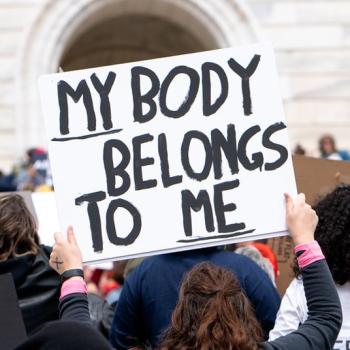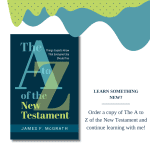
What happens when the “expert” has a change of mind?
Author’s note:
The focus of this essay is on the importance of making our own decisions. I was planning to write this essay long before I found out that Shannon Harris had written a book about her experience, so despite the appearance, the second part of the title of this essay is not about her. Given that I now know about her book, it seems appropriate to at least mention it in this essay.
Shannon Harris recently wrote a book titled, “The Woman They Wanted: Shattering the Illusion of the Good Christian Wife”. In this interview, she says she hopes churches and male pastors will read her book, and that the experience of people who’ve been hurt by church needs to be heard. The book details her experiences as the wife of Joshua Harris, author of “I kissed dating goodbye,” which was an emblem of sorts for the purity culture movement in the 1990s.
While I never read Joshua’s book, I remember being introduced to it by a friend around 1998. I honestly don’t know if she had read it, but she seemed to be recommending it, or at least the idea of “kissing dating goodbye”. Once I realized how young the author was (he was 21 at the time), my immediate response was that he was in no position to be telling the world that he “ kissed dating goodbye”. He was simply too young to be making such claims. Despite the author’s youth and lack of experience, though, the book became very popular in conservative church circles and its author was a hero of sorts.
Years later, Joshua Harris recanted what he had written in the book, apologizing for the harm that it had caused. The poster child for the purity movement not only changed his views on dating, he abandoned the faith altogether.
I have to say that I never actually read the book, so this is not a critique of the contents of the book. My point is that someone who was held up as an expert has now changed his beliefs completely. Yet, there are very likely many people out there who made decisions based on what they read in Joshua’s book. In some cases, these decisions may affect them for the rest of their lives.
She found other sources of joy
Esteemed “experts” who later experience a major shift in their beliefs and teachings are obviously not limited to religious circles. Who doesn’t want “expert” advice on how to keep their home organized?
Marie Kondo, who was known for helping people to declutter their homes taught a technique for determining what to keep and what to throw out. According to her methods, if it doesn’t spark joy, you should throw it out. Despite years of teaching others to do this, she recently confessed that, after having her third child, this method doesn’t really work for her anymore. She has found other ways of bringing joy into her life that aren’t dependent on the tidiness of her home. She admits that her home is messy, but she is spending time on the things that matter at this stage of her life. Would those who took her teachings seriously have ever believed that she would ever say it was OK to have a messy house?
Listen to advice, but make your own decisions
The moral of the story is that it’s OK to listen to other people’s advice, but at the end of the day, you should do your own thinking and make your own decisions — it’s your life, after all. The “experts” are human beings like you, and they can change their minds about the very things they’ve convinced you to do, just like Josh Harris and Marie Kondo did.
The issue isn’t so much that people, including “experts”, change their minds. Being flexible and adaptable is an essential part of growth and development. The problem is when we base our decisions on other people’s convictions, rather than our own. We would do well to remember that the people we consider “experts” are just as human as we are, and they are subject to making mistakes and changing their opinions. Regardless of what advice we receive from others, we are ultimately responsible for making our own decisions.

















